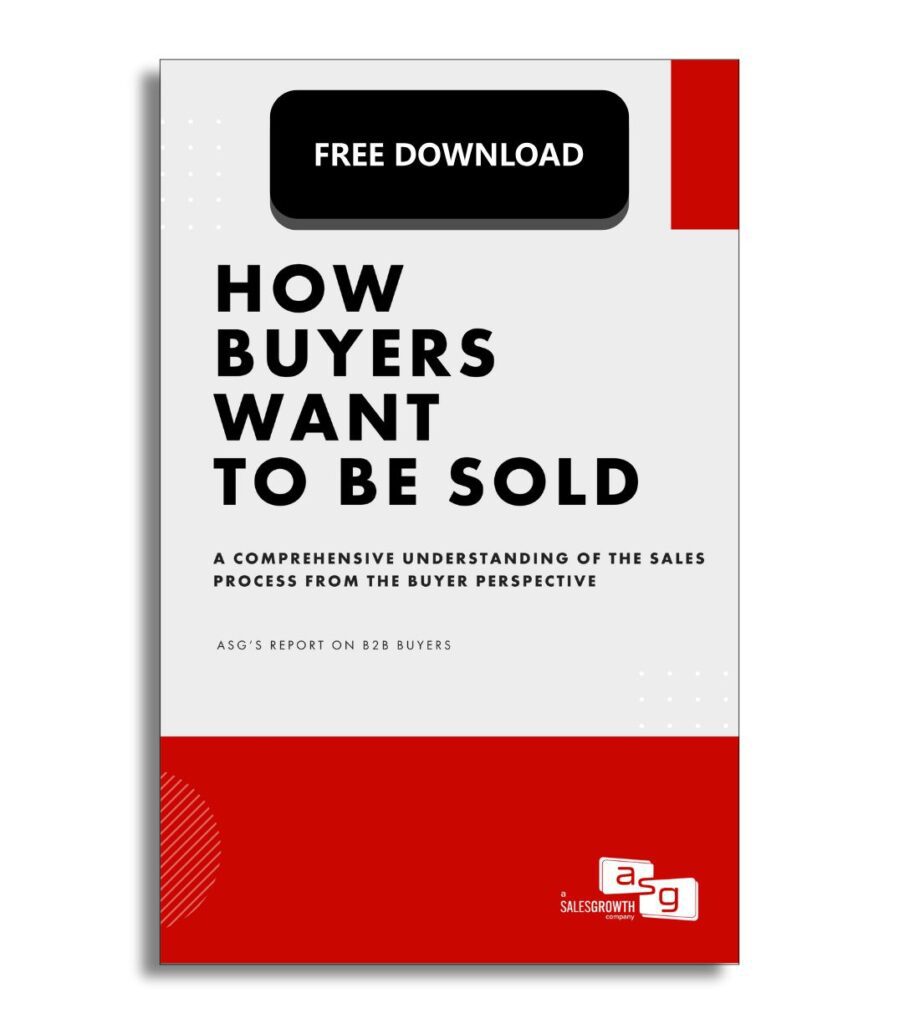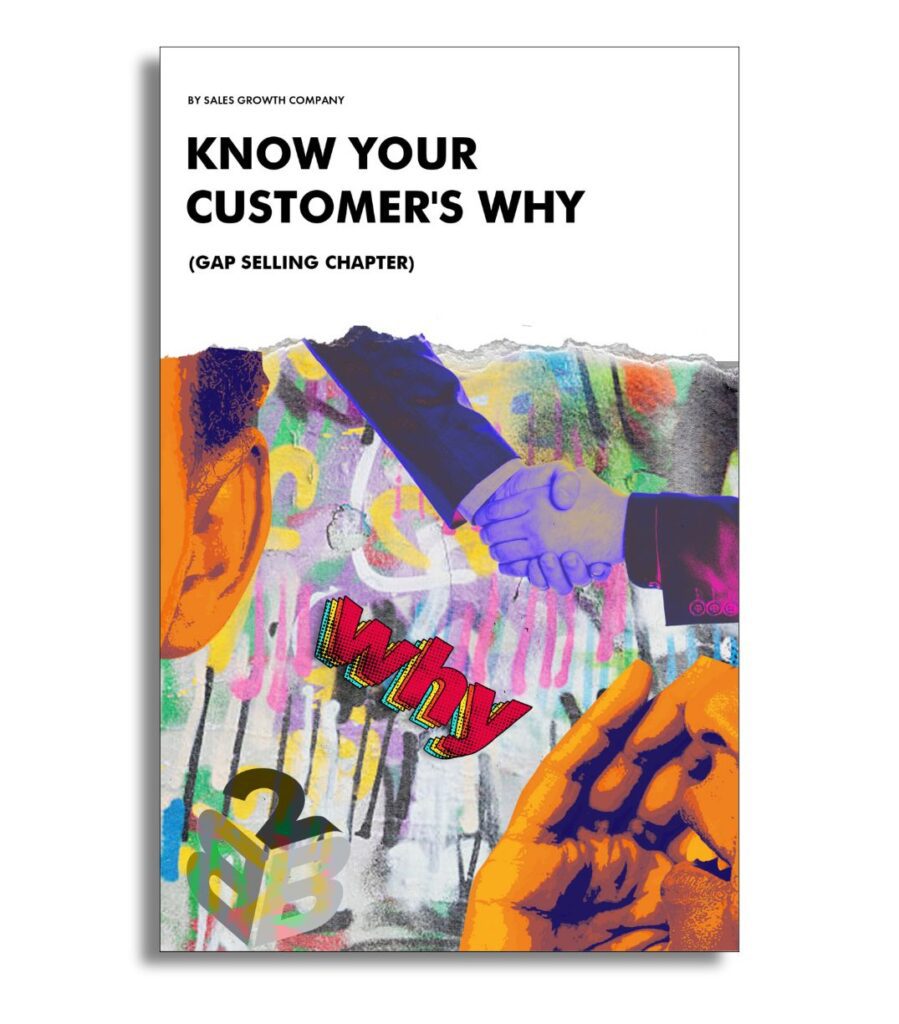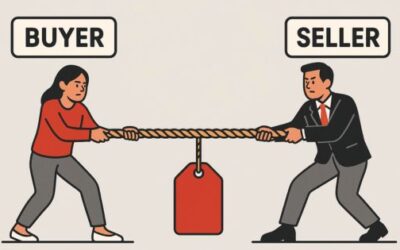ASG’s buyer survey confirms what many reps still get wrong: buyers don’t care about liking the seller. They care about whether the rep understands their business, asks the right questions, and offers insight that helps solve real problems. Too many sales conversations focus on relationship-building at the expense of relevance.
This article highlights five data-backed behaviors buyers value most. Each section outlines what buyers expect during a sales interaction and how sales teams can implement these expectations through better training, coaching, and execution.
Key Takeaways
- Credibility drives buyer decisions. 82% of buyers value credibility more than likability. Reps must demonstrate business fluency and problem-solving ability.
- Likability isn’t a purchase trigger. 54% of buyers said they don’t need to like the rep to do business. Focus on relevance and clarity instead of rapport.
- Buyers want business value. The top trait buyers value in salespeople is a strong understanding of their business, goals, and success metrics.
- Trust builds through execution. Clear communication, consistent follow-through, and preparation signal to buyers that a rep can be relied on.
- Missteps erode trust. Pushy behavior, poor discovery, and repeated mistakes cause buyers to disengage. Coaching must correct these issues quickly.
Buyers Don’t Need to Like You to Buy from You
54% of buyers said they do not need to like the salesperson to do business with them. Relationship-building based on likability is unreliable. Buyers prioritize credibility, relevance, and business alignment over interpersonal rapport.
Reps who focus too much on being liked miss opportunities to position themselves as credible problem-solvers. Buyers want sellers who understand their challenges, ask relevant questions, and offer insight tied to outcomes. Likability may help the conversation flow, but it doesn’t drive the buying decision.
Action Steps:
- Train reps to open discovery calls with a business-relevant agenda and context-based questions.
- Coach reps to focus on problem diagnosis, measurable impact, and solution relevance in early meetings.
Credibility Outranks Likability
82% of buyers said they value credibility over likability when making a buying decision.
Buyers don’t evaluate salespeople based on personality. They prefer to work with reps who demonstrate business fluency, preparation, and the ability to align solutions with real priorities. Reps earn credibility by asking sharp, diagnostic questions and delivering insight grounded in the buyer’s environment.
Buyers define credibility through problem fluency. They expect reps to ask about the root causes behind key challenges, the business impact those challenges create, and the goals those obstacles prevent. They want sellers who can surface issues the buyer hasn’t fully articulated and connect those issues to achievable outcomes.
Action Steps:
- Train reps to ask layered discovery questions focused on root causes, internal impact, and future-state objectives.
- Use call reviews to confirm reps document and clarify business problems before offering solutions.
- Require every recommendation to include a clear path from buyer input to solution fit.
Reps Who Add Business Value Win More Deals
Buyers ranked “understanding my business and goals” as the most helpful trait in a salesperson.
Buyers reward reps who demonstrate business acumen. They want salespeople who understand how the company operates, what metrics define success, and what obstacles stand in the way. Sellers who enter conversations with strong domain knowledge and tailor their approach to the buyer’s world earn more trust and forward movement.
Generic messaging and surface-level discovery don’t create value. Buyers respond to reps who can diagnose business problems, connect them to internal metrics, and propose solutions that solve real issues.
Action Steps:
- Train reps to ask diagnostic questions tied to the buyer’s operating model, KPIs, and organizational priorities.
- Build content and talk tracks that focus on solving business problems
- Certify reps on business fluency and industry alignment as part of your training process.
The Trust-Building Behaviors Buyers Value Most
Buyers said trust comes from clear communication, strong problem understanding, and consistent follow-through.
Reps build trust through preparation, execution, and accountability. Buyers look for sellers who show up ready, ask smart questions, and deliver what they say they will. They lose confidence quickly when reps miss details, skip steps, or show signs of disorganization.
The fastest way to build trust is to demonstrate attention to detail. That means capturing buyer input clearly, following through on action items, and showing consistency from meeting to meeting. Trust compounds when the rep proves they’re committed to helping the buyer solve a real problem.
Action Steps:
- Require reps to document every buyer conversation in CRM, including problem, root cause, and stated goals.
- Train reps to confirm next steps in writing and follow through on all commitments.
- Audit messaging templates to ensure precision, accuracy, and alignment with buyer input.
The Behaviors That Break Trust
Buyers lose trust when salespeople act pushy, skip preparation, or ignore input shared in previous conversations.
Reps damage credibility when they lead with assumptions, fail to follow through, or recycle generic talk tracks that don’t reflect the buyer’s world. Buyers notice when sellers ask the same questions twice, contradict prior information, or default to pitching.
Misalignment in messaging, lack of attention to detail, and rep-driven agendas create friction. When buyers see these behaviors, they disengage. Poor discovery, weak follow-up, and inconsistent execution are key reasons deals stall or get lost.
Action Steps:
- Inspect discovery calls for signs of seller-led agendas and missed buyer input.
- Remove sales content that emphasizes product features before the problem is understood.
- Coach reps to confirm and revisit past buyer input before offering new recommendations.
Conclusion: Operationalize Trust to Improve Sales Execution
Buyers reward credibility, not charm. They want to work with salespeople who understand their business, ask strong questions, and stay aligned to real goals throughout the sales process.
ASG’s buyer survey confirms that surface-level rapport and seller-driven conversations erode trust. High-performing teams build trust through preparation, problem fluency, and consistency. Sales leaders must reinforce these behaviors through training, inspection, and coaching.
To close the gap between buyer expectations and sales execution, define credibility by the buyer’s standards. Focus on problem diagnosis, business alignment, and measurable outcomes. The teams who do this will build stronger pipeline, accelerate deal movement, and win more often.





0 Comments